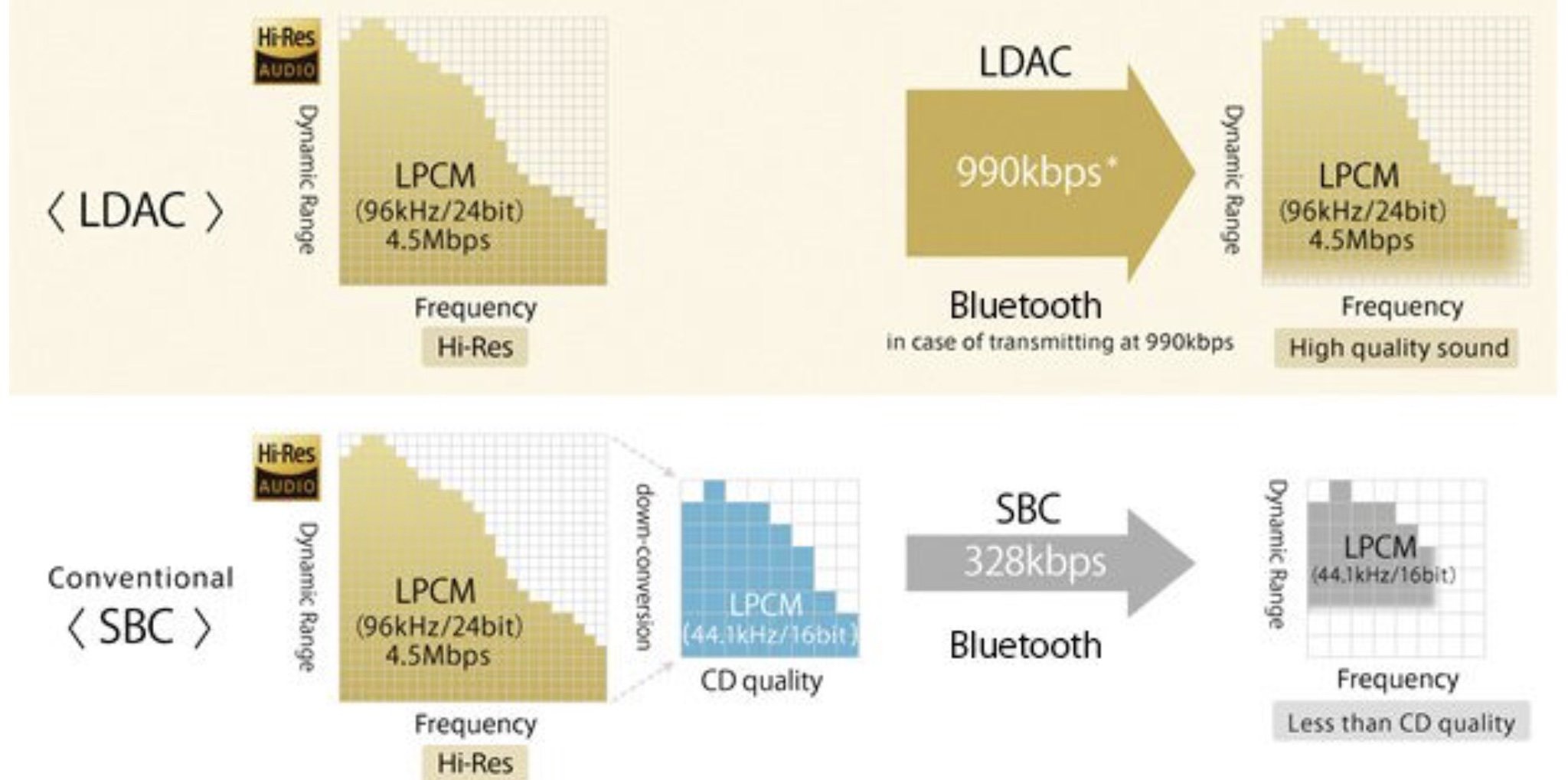Best answer: Yes. With the current state of wireless technology, wired has better audio quality than wireless for the foreseeable future.
- In-Ear tunes: Libratone Q Adapt In-Ear (USB-C) ($119 at Amazon)
- Over-ear alternative: Bang & Olufsen H9i ($345 at Amazon)
Comparing audio compression
When it comes to headphones, the sound quality is crucial and if you want superior sound, you might be wondering if USB-C headphones are better than wireless or other wired connections. Let's consider the audio compression with USB-C, Bluetooth, and a traditional 3.5mm jack.
First, we'll check out the difference between the wired headphones.
Audio over USB-C and a traditional 3.5mm audio jack should be identical, with the only difference being the 3.5mm jack is an analog signal and USB-C is digital. This means that audio that is carried over the 3.5mm jack will need to be converted from a digital signal (from your phone or tablet) to an analog signal your headphone or speaker can read.
Since they're both wired, they're able to produce "near-lossless" quality audio. This is only important if you rip your music from a CD or if you use a streaming service such as TIDAL, which offers a "Hi-Fi" streaming option. Lossless or near-lossless audio attempts to retain as much of the original song as possible. You'll only be able to hear this type of audio when using a wired connection such as USB-C.
Streaming services such as Apple Music and Spotify use what's known as "lossy" compression. These services use techniques to lower the overall file size and cut out audio frequencies most humans won't hear. For these services, any headphone, whether wired or wireless, will for the most part sound the same.
When compared to the wireless audio standard, Bluetooth, USB-C is vastly superior in a number of ways. Despite Bluetooth being a digital connection, it needs to be compressed before it arrives to your headphones or speaker. Typical streaming services such as Apple Music or Spotify have 256 and 320Kbps bitrates respectively. Most Bluetooth audio codecs have a bitrate in that ballpark, with some more advanced codecs supporting higher bitrates, up to 990Kbps.
However, Bluetooth is much more convenient than wired headphones because it's wire-free. With most users streaming music nowadays, Bluetooth is a perfectly good solution.
Which devices support USB-C headphones?
USB-C itself supports audio over the connection as part of the USB standard. This means that headphones, speakers, and even amplifiers or DACs (digital-to-analog converters) are able to transfer audio data over USB-C. However, some devices, like smartphones that still have a physical 3.5mm audio jack, may disable this in software in favor of the 3.5mm jack or Bluetooth audio.
On the other end of the spectrum, certain Bluetooth headphones that have a USB-C port support charging and audio over the same cable. Though some popular headphones like the Sony WH1000XM3s or the Microsoft Surface Headphones have a USB-C port, it's only used for charging.
Other headphones such as the Bang & Olufsen H9i or to a certain extent, the Nuraphones by nura, support audio over USB-C. At this point, it's up to the manufacturer to decide whether you can have audio over USB-C, which is becoming an increasingly more common request as mobile devices begin to axe the 3.5mm audio jack.
In this day and age, the average person streams music, which is already compressed in a way that sounds good over all types of connections — wired or wireless.
For over-ear lovers
Bang & Olufsen H9i
Exceptional sound quality wired or wireless
Most manufacturers are skipping USB-C altogether in favor of wireless Bluetooth headphones. Bang & Olufsen's offering is both. Free yourself from the wire and go Bluetooth when on the go, or listen and charge simultaneous over a single USB-C cable.
In-Ear Tunes
Libratone Q Adapt In-Ear (USB-C)
Wired in-ears with ANC and a Hush mode
No fancy bells and whistles. Gets straight to the point. Wired so you don't need to worry about battery life or latency. With ANC and Hush mode, you'll truly be able to enjoy your music without skipping a beat.
from Android Central - Android Forums, News, Reviews, Help and Android Wallpapers https://ift.tt/2FEcat7
via IFTTT



No comments:
Post a Comment